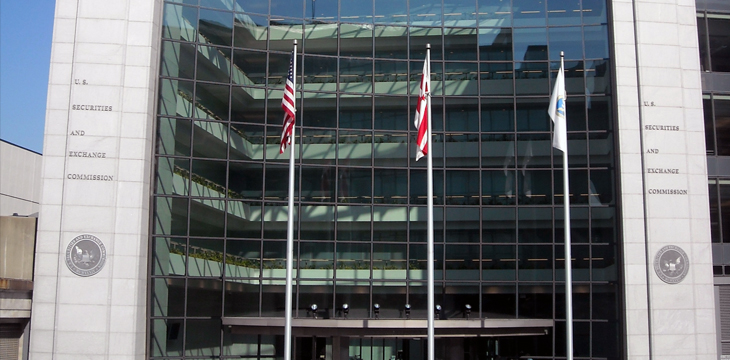|
Getting your Trinity Audio player ready...
|
It’s said that just because it looks good on paper, doesn’t mean it looks good in practice. This adage could hold true, in a way, for smart contracts. While they aren’t actually written on paper, their original design is proving to enjoy a more theoretical victory than a real-life one. Nick Szabo, who was originally behind smart contracts, has started to question if they make sense and even Ethereum’s Vitalik Buterin is someone turned off to them. Now, it appears that the U.S. Securities and Exchange Commission (SEC) isn’t behind them, either, and could actually prosecute someone who develops a smart contract—even if that person doesn’t use it.
In its Statement on Digital Asset Securities Issuance and Trading, which was published last Friday, the SEC asserts that a smart contract provides “the means for investors and market participants to find counterparties, discover prices, and trade a variety of digital asset securities.” It made several references to the contracts, pointing out how it has already prosecuted someone, Zachary Coburn, for “operating an unregistered securities exchange” using smart contracts that he had coded.
Coburn ran the EtherDelta decentralized exchange (DEX) and was fined $400,000 by the SEC. While the case seems to be straightforward—he was operating an exchange without approval—there’s more to it than that.
According to the Friday statement, the SEC states, “An entity that provides an algorithm, run on a computer program or on a smart contract using blockchain technology, as a means to bring together or execute orders, could be providing a trading facility. As another example, an entity that sets execution priorities, standardizes material terms for digital asset securities traded on the system, or requires orders to conform with predetermined protocols of a smart contract, could be setting rules.”
Therefore, someone who develops a smart contract could potentially be held liable for any activity that takes place on the contract. If computer code was once viewed as a form of free speech in the U.S., those days could be over.
Szabo recognizes the issue smart contracts are facing and suggests that he understands how a smart contract developer could be held liable. He said in a Twitter post last Friday, “‘Smart contract’ like ‘contract’ connotes a deal between people, but a deal intermediated and incentivized by dynamic machine-interpreted rules instead of the statically recorded human-interpreted rules of a traditional contract.”
"Smart contract" like "contract" connotes a deal between people, but a deal intermediated and incentivized by dynamic machine-interpreted rules instead of the statically recorded human-interpreted rules of a traditional contract.
— Nick Szabo (@NickSzabo4) November 17, 2018
Based on the stance of the SEC, which will certainly grow bolder moving forward, it would appear that smart contracts aren’t so smart, after all.

 02-18-2026
02-18-2026 




